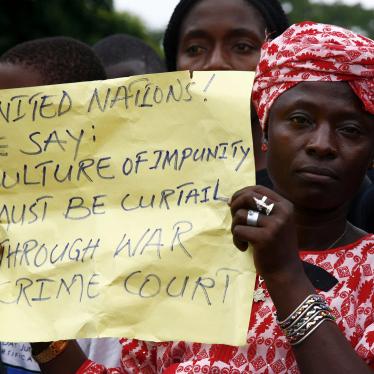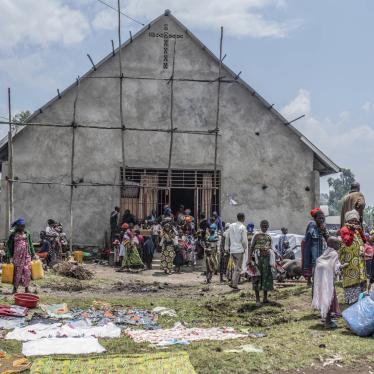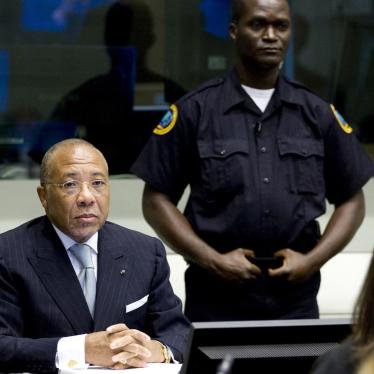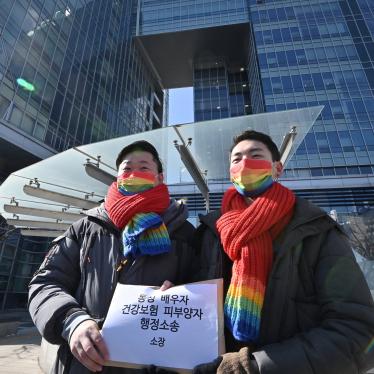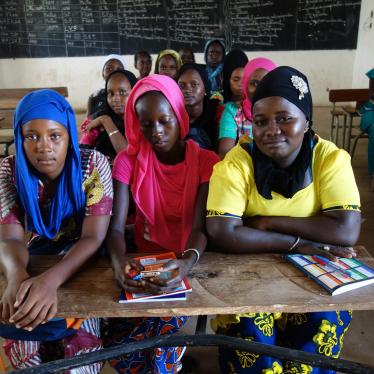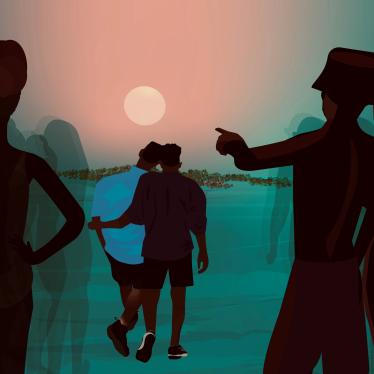Summary
- In its Concluding Observations, the Committee requested that the State party provide information on the steps taken to implement its recommendations contained in paragraphs 11 (impunity and past human rights violations), 37 (administration of justice and fair trial) and 47 (customary land).[1] This report focuses on the steps taken by the State party and developments within the State since 27 August 2018, related to the recommendations in paragraph 11.[2]
I. While recent progress is promising, Liberia has not yet fully established and implemented a process of accountability or prosecuted any alleged perpetrators for past gross human rights violations and war crimes. (CO paragraph 11 (a)).
- Widespread and systematic violations of international human rights and humanitarian law[3] characterized Liberia’s two brutal armed conflicts, which took place between 1989 and 2003. Liberian men, women, and children were gunned down in their homes, marketplaces, and places of worship. In a few cases hundreds of civilians[4] were massacred in a matter of hours. Girls and women were subjected to horrific sexual violence[5] including gang-rape, sexual slavery, and torture. Children were abducted from their homes and schools and pressed into service, often after witnessing the murder of their parents. The violence blighted the lives of tens of thousands of civilians and displaced almost half the population.
- With President George Weah’s election in December 2017, Liberian and international activists began a new campaign[6] for action by the government to establish a war crimes court. As president, Weah was initially silent on the question of accountability. Pressure for accountability throughout 2018 and 2019 increased as the activists’ campaign was joined by widespread support and clamoring[7] for the court by a diverse set of actors in Liberia, including political parties[8], religious leaders[9], lawyers[10], victims and ordinary Liberians[11], supported[12] the campaign. As the State party notes in its follow-up report, Liberia’s bar association prepared[13] a draft law for the establishment of a war crimes court in 2019 and the National Traditional Council of Elders and Chiefs affirmed their support for the bill in September 2019.
- In September 2019, President Weah sent a letter to the legislature[14] calling for it “to advise and provide guidance on all legislative and other necessary measures towards the implementation of the TRC [Truth and Reconciliation Commission] report, including the establishment of war and economic crime courts.” Over 50 legislators[15] from Liberia’s House of Representatives endorsed a resolution backing a court. Weah then stated during his 2019 speech[16] at the General Debate of the United Nations General Assembly (UNGA), “Considering the importance of this matter, I have already begun consultations … in order to determine pertinent issues such as legal framework, timing, venue, and funding, among others.”
- Subsequently, President Weah seemed to reverse his position on the war crimes court. He told Liberian media[17] upon his return from the UNGA: “I have not one day called for a war crimes court.” President Weah was subsequently silent[18] or dismissive[19] of the proposed court, while Liberian legislature leadership blocked the resolution supporting a court from consideration[20]. In 2021, Liberia’s Senate then proposed the creation of a Transitional Justice Commission (TRC) that would impede progress on accountability by revisiting the basic premise of Liberia’s TRC[21] to recommend prosecutions. The effort was driven[22] by Senator Prince Johnson, warlord subject to US sanctions under the Global Magnitsky Act. Johnson has openly opposed[23] the court, unsurprisingly given that he is alleged to have committed serious crimes[24] during Liberia’s conflict, including the torture and murder of former President Samuel Doe. As a result of these efforts, the Weah administration made no progress toward creation of a war crimes court.
- In November 2023, opposition leader Joseph Boakai defeated Weah in the second round of the Liberian presidential election. In his inaugural address[25] on 22 January 2024, President Boakai committed to “set up an office to explore the feasibility for the establishment of War and Economic Crimes Court to provide an opportunity for those who bear the greatest responsibility for war crimes and crimes against humanity to account for their actions in court.” In March and April of 2024, the Liberian Senate and House of Representatives passed a resolution supporting the creation of a war and economic crimes court.
- On May 2, 2024 President Boakai signed an executive order[26] establishing an Office of the War and Economic Crimes Court for Liberia. The Office is being established to “investigate design, and prescribe the methodology, mechanisms, and the process” for the establishment of a war crimes court and a national anti-corruption court. While these developments are promising, Parliament must still pass legislation establishing a war crimes court and the Office must still develop a legal framework for the court that can ensure fair and effective trials for serious crimes committed and seek financial and technical support for its operation. Further, reparations were not mentioned in President Boakai’s executive order.
- To date not a single person has faced criminal investigation or prosecution in Liberia for serious crimes committed during the civil wars. The only steps toward justice for serious crimes have been cases prosecuted abroad[27]. These include the conviction of Charles “Chuckie” Taylor, Jr.[28] in the United States[29] for torture committed in Liberia, and the convictions of former rebel commanders Alieu Kosiah in Switzerland[30] and Kunti Kamara in France[31] for serious crimes committed during the civil wars. Separately, “Jungle Jabbeh,”[32] and Thomas Woewiyu[33] were convicted of violations of US federal immigration laws linked to their underlying abuses in Liberia. George Boley[34] was deported to Liberia from the US for his recruitment and use of child soldiers during the civil wars. He was then elected to Liberia’s legislature[35] and has not faced justice for his alleged crimes.
- There was also a successful civil suit in the United States relating to one of the single worst incidents during Liberia’s wars, the 1990 Lutheran Church massacre.[36] However, the defendant fled to Liberia from the United States, where he now resides. In 2022, the Global Justice Research Project and survivors of the massacre brought a suit before the Economic Community of West African States (ECOWAS) Court of Justice[37] for Liberia’s failure to investigate and prosecute crimes during the massacre. The parties are waiting for the Court to schedule a hearing in the case.
- As the State party notes[38], it has created an enabling environment for criminal cases to move forward in other jurisdictions. However, these cases brought by third states far from Liberia and far from the Liberian survivors and victims of the civil wars, and do not fulfill the State party’s obligation to ensure accountability and justice particularly where, as here, individuals who have been credibly accused of gross human rights violations, reside in Liberia, and have faced no investigation or prosecution for their actions.
II. Liberia has failed to implement recommendations of the Truth and Reconciliation Commission related to impunity and past human rights violations (CO para 11(b))
- When negotiations to end the second civil conflict occurred in Accra, Ghana in 2003, members of Liberian civil society gathered to advocate for the establishment of a war crimes court to bring to justice alleged perpetrators of the crimes. Ultimately Liberia’s Truth and Reconciliation Commission (TRC) was created, which represented a compromise between a court and other accountability measures. The act creating the TRC gave wide powers to the commission, including to recommend prosecutions. The TRC in its final report recommended the creation of an extraordinary criminal court[39] which would be a hybrid court composed of Liberian and international judges, prosecutors and other staff with a mandate to try those allegedly responsible for committing serious crimes. As described above in section II, this court has yet to be effectively established. A war crimes court to fairly try the crimes is needed without delay.
III. Liberia has not yet developed a comprehensive reparations scheme for victims of gross human rights violations and war crimes (CO paragraph 11(c))
- The State party failed to comment on this recommendation in its report. While the government of Liberia committed to establishing a reparation trust fund, creating a psychosocial program for victims, and developing a community-based reparations program in the Strategic Roadmap for National Healing, Peacebuilding, and Reconciliation, to date, the State party has taken no action to develop and implement a comprehensive reparations scheme. Victims have had no access to any reparations in Liberia for civil wars-era crimes since the end of the conflicts in 2003. The reparation scheme remains an urgent need, as many of the victims continue to suffer from severe bodily harm and psychological trauma.
IV. Liberia has failed to adequately engage victims, families and civil society organizations in efforts at fostering reconciliation and sustaining peace (CO paragraph 11(d))
- Liberia has not initiated a comprehensive process to memorialize the victims of the conflict. While the State party notes in its follow up report that it has built 10 memorials in different parts of the country, very little has been done to engage participation of victims and their families as well as civil society organizations active in seeking justice for past crimes. The process of building memorials was not inclusive or holistic, and it left out significant stakeholders.
V. Suggested Recommendations
- Making justice a reality in Liberia requires sustained attention from justice champions in and outside of Liberia. What is needed now is for President Boakai’s Administration to translate its stated commitment to a war crimes court into concrete steps for the court’s creation alongside clear, high-level messages from Liberia’s international and regional partners in support of a court. Liberia should request international and regional support to help it to determine the best legal and structural modalities for the court’s creation in a manner that will enable fair, credible functioning and partners should pledge international support and expertise based on accumulated experience.
- This follow-up report suggests the following recommendations for the Government of Liberia:
- Establish the Office proposed by President Boakai to be responsible for developing and implementing a concrete plan to establish a war and economic crimes court to hold perpetrators of grave crimes committed during Liberia’s armed conflicts to account consistent with international standards and practice and ensure this plan is consistent with a victim-centered approach, including consultation with affected communities on the design of the court.
- Establish an independent committee comprised of government officials, a member of the Independent National Commission of Human Rights, international legal experts, and civil society actors from various sectors that is mandated to advise the government on the court’s creation. The committee should help establish a roadmap on the way forward for ensuring justice for war crimes and for strengthening the rule of law.
- Request assistance from the United Nations, African Union, ECOWAS, and other international and regional partners as needed, to develop a credible war crimes court.
- Ensure a war crimes court for Liberia includes key elements in order to achieve trials that would be fair, meaningful, and credible:
- Composition of judicial benches that will have sufficient independence and expertise by including a majority of international judges on each trial and appeals bench;
- No bars on prosecution of individuals on the basis of their cooperation with the TRC;
- Inclusion of crimes and modes of liability in line with international standards;
- Fair trial protections;
- Witness protection and support;
- Involvement of victims in proceedings; and
- Outreach and communications that inform the victims and public.
- Work with the legislature to ensure the war crimes court established to hold perpetrators of grave crimes committed during Liberia’s armed conflicts to account is consistent with international standards and practice.
- Request from international partners adequate support and funding for programs designed to improve Liberia’s judiciary and criminal justice system to ensure an effective war crimes court and victims’ access to justice and the right of the accused to a fair trial.
- Continue to support efforts by third countries to bring universal jurisdiction cases for civil war-era crimes, including by continuing to fully cooperate with foreign authorities who request authorization to come to Liberia to investigate international crimes.
- Develop and implement a comprehensive reparations scheme for all victims of gross human rights violations and war crimes.
- Ensure protection for human rights defenders inside Liberia against attacks and intimidation, and bring to justice those who intimidate or attack human rights defenders.
- Ensure respect for freedoms of assembly and speech for members of civil society engaging in peaceful demonstrations in favor of accountability and transparency, and for journalists endeavoring to fulfill their important mandate.
Submitted by The Advocates for Human Rights, a non-governmental organization in special consultative status with ECOSOC since 1996
and
CSO Platform – Liberia
Global Justice and Research Project
Secretariat for the Establishment of War Crimes Court in Liberia
Center for Justice and Accountability
CIVITAS MAXIMA
Global Justice Center
Human Rights Watch
--
[1] Human Rights Committee, Concluding Observations the initial report of Liberia, (17 August 2018), U.N. Doc. CCPR/C/LBR/C)/1, ¶ 49.
[2] Human Rights Committee, Concluding Observations the initial report of Liberia, (17 August 2018), U.N. Doc. CCPR/C/LBR/C)/1, ¶ 41.
[3] Human Rights Watch, Q&A: Justice for Civil Wars-Era Crimes in Liberia, (Apr. 1, 2019), https://www.hrw.org/news/2019/04/01/qa-justice-civil-wars-era-crimes-liberia.
[4] Jane W, John X, John Y, John Z v. Moses Thomas, U.S. District Court for the Eastern District of Pennsylvania, Case number 2:18-cv-00569-PBT, https://cja.org/wp-content/uploads/2018/02/Jane-W-v.-Moses-Thomas-18-cv-00569.pdf.
[5] Truth and Reconciliation Commission of Liberia, Final Report of the Truth and Reconciliation Commission of Liberia, https://www.trcofliberia.org/resources/reports/final/trc-final-report-volume-1-full.pdf.
[6] Letter from Human Rights Watch to President of Liberia George Weah (Feb. 12, 2018), https://www.hrw.org/news/2018/02/12/hrw-letter-president-liberia-george-weah.
[7] Human Rights Watch, Liberia Stakeholder Report for the United Nations Universal Periodic Review Regarding Impunity for Past Human Rights Violations, (Oct. 3, 2019), https://www.hrw.org/news/2019/10/03/liberia-stakeholder-report-united-nations-universal-periodic-review-regarding.
[8] New Dawn, Weah Prioritizes War Crimes Court, The New Dawn, Sep. 16, 2019, https://thenewdawnliberia.com/weah-prioritizes-war-crimes-court/.
[9] Liberia Bar Association Backs Traditional Council Recommendation for War Crimes Court, Front Page Africa, Sep. 13, 2019, https://frontpageafricaonline.com/news/liberia-bar-association-backs-traditional-council-recommendation-for-war-crimes-court/.
[10] Gerald C. Koinyeneh, Liberian Bar Association’s President Calls on United Nations Security Council to Establish War & Economic Crimes Court of Liberia, Front Page Africa, Jul. 20, 2021, https://frontpageafricaonline.com/liberia-war-crimes-trial/liberian-bar-associations-president-calls-on-united-nations-security-council-to-establish-war-economic-crimes-court-for-liberia/.
[11] Gerald C. Koinyeneh, Liberia: Emmanuel Savice Was Arrested for Breaching Security Protocol, Govt Says, Front Page Africa, Mar. 4, 2020, https://frontpageafricaonline.com/news/liberia-emmanuel-savice-was-arrested-for-breaching-security-protocol-govt-says/.
[12] Human Rights Watch, Liberia Stakeholder Report for the United Nations Universal Periodic Review Regarding Impunity for Past Human Rights Violations, (Oct. 3, 2019), https://www.hrw.org/news/2019/10/03/liberia-stakeholder-report-united-nations-universal-periodic-review-regarding.
[13] New Dawn, War crimes court bill under review, The New Dawn, Sep. 13, 2019, https://thenewdawnliberia.com/war-crimes-court-bill-under-review/.
[14] Lennart Dodoo, Liberia: President Weah Seeks Legislature’s Advice for War Crimes Court, Front Page Africa, Sep 14. 2019, https://frontpageafricaonline.com/news/liberia-president-seeks-legislatures-advice-for-war-crimes-court/.
[15] Gerald C. Koinyeneh, Liberia: House Speaker Removes War Crimes Court Resolution from Agenda for Deliberation, Front Page Africa, Oct. 7, 2019, https://frontpageafricaonline.com/news/liberia-house-speaker-removes-war-crimes-court-resolution-from-agenda-for-deliberation/.
[16] My Government is a Listening Administration- Pres. Weah Raps UNGA, Boasting of No Political Prisoners, The Analyst News, Sep. 28, 2019, https://analystliberiaonline.com/my-government-is-a-listening-administration-pres-weah-raps-unga-boasting-of-no-political-prisoners/.
[17] Leroy M. Sonpon III, Liberia: War Crimes Court Momentum Swells, Liberian Observer, Mar. 06, 2024, https://www.liberianobserver.com/liberia-war-crimes-court-momentum-swells.
[18] Dounard Bondo, Liberia: 18 years later and still waiting for a war crimes court, The Africa Report, Jul. 6, 2021, https://www.theafricareport.com/105941/liberia-18-years-later-and-still-waiting-for-a-war-crimes-court/.
[19] Peace, not war crimes court, The New Dawn, Jun. 7, 2021, https://thenewdawnliberia.com/peace-not-war-crimes-court/.
[20] Gerald C. Koinyeneh, Liberia: House Speaker Removes War Crimes Court Resolution from Agenda for Deliberation, Front Page Africa, Oct. 7, 2019, https://frontpageafricaonline.com/news/liberia-house-speaker-removes-war-crimes-court-resolution-from-agenda-for-deliberation/.
[21] Human Rights Watch, Open Letter on the Recommendation by Liberia’s Senate to Establish a Transitional Justice Commission, (Aug. 3, 2021), https://www.hrw.org/news/2021/08/03/open-letter-recommendation-liberias-senate-establish-transitional-justice.
[22] As War Crimes Call Get Louder, Prince Johnson Threatened to Turn Tables Over, Liberian Listener, May. 14, 2021, https://www.liberianlistener.com/2021/05/14/as-war-crimes-calls-get-louder-prince-johnson-threatened-to-turn-tables-over/.
[23] As War Crimes Call Get Louder, Prince Johnson Threatened to Turn Tables Over, Liberian Listener, May. 14, 2021, https://www.liberianlistener.com/2021/05/14/as-war-crimes-calls-get-louder-prince-johnson-threatened-to-turn-tables-over/.
[24] Human Rights Watch, Liberia: A Human Rights Disaster, (Oct. 26, 1990), https://www.hrw.org/reports/1990/liberia/.
[25] Nyuma Boakai, “Inaugural Address of His Excellency Joseph Nyuma Boakai SR”, (Jan. 22, 2024), https://www.emansion.gov.lr/sites/default/files/documents/INAUGURAL-ADDRESS-OF-HIS-EXCELLENCY-JOSEPH-NYUMA-BOAKAI.pdf.
[26] Dounard Bondo and Ruth Maclean, Liberia Moves to Create War Crimes Court, Decades After Civil Wars Ended, The New York Times, Mar. 3, 2024, https://www.nytimes.com/2024/05/03/world/africa/liberia-court-war-crimes.html.
[27] Human Rights Watch, Q&A: Swiss Trial for Liberia Atrocities: Universal Jurisdiction Paves Path for Justice, (Feb. 12, 2021), https://www.hrw.org/news/2021/02/12/qa-swiss-trial-liberia-atrocities-universal-jurisdiction-paves-path-justice.
[28] Human Rights Watch, US: First Verdict for Overseas Torture, (Oct. 30, 2008), https://www.hrw.org/news/2008/10/30/us-first-verdict-overseas-torture.
[29] Human Rights Watch, US: First Verdict for Overseas Torture, (Oct. 30, 2008), https://www.hrw.org/news/2008/10/30/us-first-verdict-overseas-torture.
[30] Civitas Maxima, “Alieu Kosiah”, https://civitas-maxima.org/legal-work/our-cases/alieu-kosiah/.
[31] Civitas Maxima, “Kunti Kamara”, https://civitas-maxima.org/legal-work/our-cases/kunti-k/.
[32] Civitas Maxima, “Mohammed Jabbateh”, https://civitas-maxima.org/legal-work/our-cases/mohammed-jabbateh/.
[33] Civitas Maxima, “Thomas Woewiyu”, https://civitas-maxima.org/legal-work/our-cases/thomas-woewiyu/.
[34] Press Release, U.S. Immigration and Customs Enforcement, Liberian Human Rights Violator Removed from the US, (Mar. 29, 2012), https://www.ice.gov/news/releases/liberian-human-rights-violator-removed-us.
[35] Dounard Bondo, Liberia: Prince Johnson and George Boley, former warlords who remain powerful in politics, Jul. 20, 2022, https://www.theafricareport.com/107181/liberia-prince-johnson-and-george-boley-former-warlords-who-remain-powerful-in-politics/.
[36] JANE W ET AL. V. THOMAS (LUTHERAN CHURCH MASSACRE), The Center for Justice and Accountability, https://cja.org/what-we-do/litigation/jane-v-thomas/.
[37] Debevoise, CJA, and IHRDA File Suit Against Liberia in Human Rights Case, Debevoise & Plimpton, Oct. 5, 2022, https://www.debevoise.com/news/2022/10/debevoise-cja-and-ihrda-file-suit.
[38] Human Rights Committee, Information received from Liberia on follow up to the concluding observations on its initial report, (7 December 2023), U.N. Doc. CCPR/C/LBR/FCO/1, ¶ 11.
[39] Human Rights Watch, Justice for Liberia, (Dec. 10, 2009), https://www.hrw.org/news/2009/12/10/justice-liberia.
